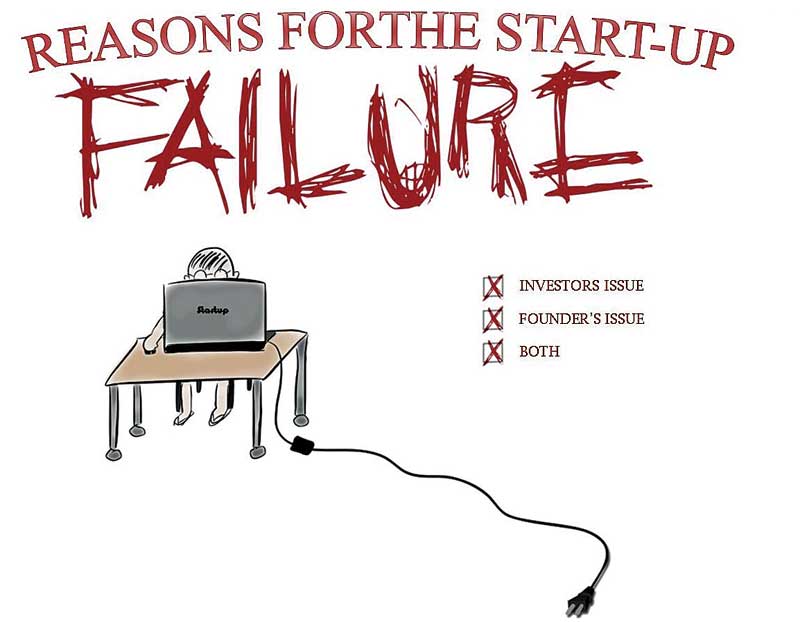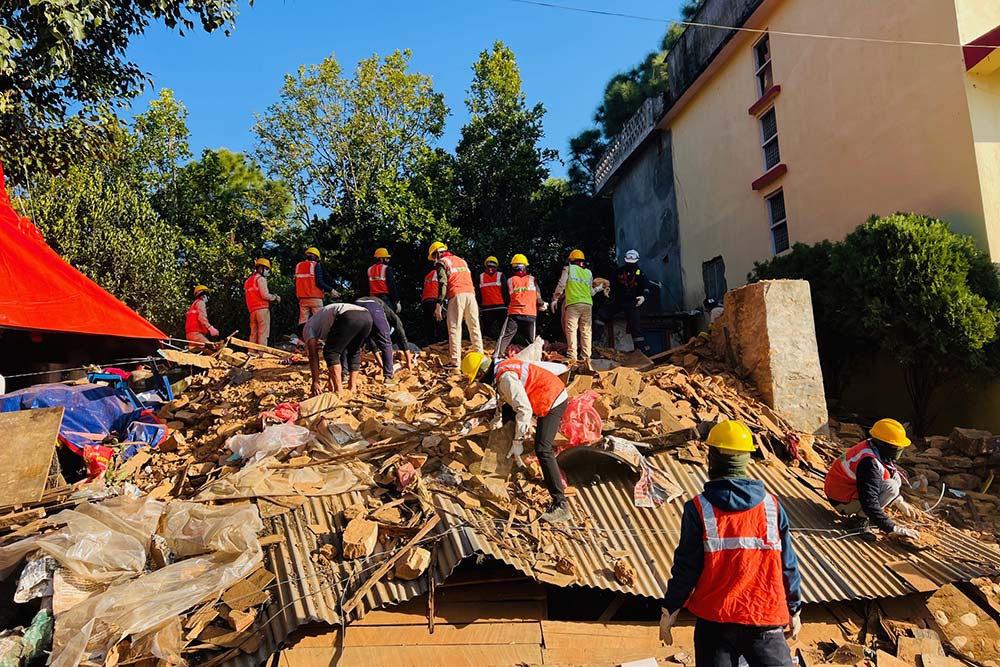
Entrepreneurship is all about getting out of comfort zone, taking calculated risk and modifying yourself with the changes taking place around. If an entrepreneur is unwilling to take risk, he is averting success. And if he does, there are chances that he will fail. Yet, believing in your vision and embracing failure are necessary steps to entrepreneurial success. At the same time, it is sensible to find out the reasons why startups fail.

Startup Failure
There is no clear line to define the difference between startup companies and SMEs. So, we can say that early stage companies which have not identified their exact business model but have identified problems and solutions are startups. "Though we have no official data, it is estimated that 90 percent of businesses fail in Nepal,†says Kavi Raj Joshi, Co-founder of Startups Nepal. He adds, "We are higher than the global average of failure as we don‘t have competitive products and are targeting the local market.â€Challenges of Startups
Though there are lots of entrepreneurs with good concepts and competitive ideas, people get discouraged due to the hassles while opening or closing a company,†says Ajay Shrestha, Programme Director at Enterprise, a Business Accelerator. "Besides this, another challenge is the inconvenient and incomplete laws and regulations of capital market. There are no clear policies and assurances for return on investment on exiting from the company, it is unfavourable for local, foreign and even NRN‘s to exit from startups.†he shares. "Government - at this point of time - is underestimating the potential of startup culture in Nepal. It has always been reactive to situations rather than foreseeing and preparing for them,†opines Niraj Khanal, CEO of Antarprerana, a Business Accelerator. Similarly, Simon Mathijssen, Programme Director at Rockstart Impact observes lack of capital as a major reason for a startup failure. He says that there is no proper ecosystem in Nepal to ensure capital growth.
What entrepreneurs‘ lack?
A number of Nepali people lack focus. "Lack of vibrant strategy is one of the reasons most startups fail in Nepal,†Mathijssen further explains, "They are into multiple businesses at one time which divert their minds into different projects rather than fully concentrating on one.†Another reason is that Nepalis have too many options. "Though we know that keeping our feet in too many boats is unrewarding, we are insecure in our own initiatives and prefer to keep many options open,†he says. A majority of young Nepalis lack patience and can‘t stick to an idea for long. "When we observe Kathmandu, we find lots of people are quitting their businesses,†adds Joshi, "Though they are very excited in the beginning, most of them end up with a job or going abroad.†According to him, most Nepali entrepreneurs work on assumption and do not try to find data while doing their market research. He adds, "We don‘t analyse deeply from a customer‘s point of view and also don‘t research about the competitor. This eventually leads to creation of a wrong product or service.†In addition, lack of transparency is a major problem in Nepal. "People hesitate to speak up about their ideas and their business model,†says Shrestha. This indicates reluctance to collaborate with likeminded people working on the same project and also one of the reasons startups in Nepal doesn‘t grow as expected. Hesitating to share limits professional growth.Dim view of entrepreneurship
There are lots of people who dream of becoming entrepreneurs. Startup seems glamorous initially. Taking a step is a bold decision while sustaining the business is very difficult. It is not an easy journey. When you start a company, you have to be prepared to not succeed in making money overnight. Your co-founders may be impatient waiting for profit, potential investors may not inject money as promised, you may struggle with finances and have to work longer hours that burn into your personal life and routine. Getting into business can be really beneficial however it can involve brutal risks.Failure leads to a success
With startups, there are many examples of failures transforming into successful businesses eventually. "A lot of good entrepreneurs have failed in the beginning. Failing can be a personal lesson to do much better in the future,†says Mathijssen. "People don‘t want to learn from failure,†Joshi adds, "This culture is demotivating and only encourages fear of failure. Media can play a vital role and more entrepreneurs should be open to talk about their experiences so other can learnâ€. The online food delivery company, Foodmandu went into crisis for a period of time. "We handled the company with loss till fourth year since the operation,†says Manohar Adhikari, Chief Executive of FoodMandu. The earthquake was a big blow for the company which led them to close the company for three months. "During that time, we had to close for three months and the blockade was even more difficult. We asked our customers to pay us delivery charges. As we were already in the fifth year, closing down was not an option. We took the risk to continue and are in an even better position now,†he says.Role of government and accelerators to reduce Startup failure
"Government should conisder facilitating and encouraging investors (angel investors, venture capitalist, etc) to invest in startups. Moreover, there are many international investors advancing startups globally, government should encourage them to invest in Nepal. Such kinds of investors not just bring in money but also skills and knowledge,†expresses Khanal. According to Khanal, policies on taxation, investment and operations should be flexible and different for startups. He also strongly recommends that legal and government procedures should be shortened. "Accelerator programmes have helped entrepreneurs to grow and bridge the gap between them, investors and mentors. Also these programmes have been contributing by introducing new entrepreneurs and innovations,†Khanal states, adding "Now, the market needs to hear successful case studies of such entrepreneurs who have graduated from the existing accelerator programmes. This will encourage other aspiring entrepreneurs to do better and grow. †"While doing business, there can be problems which the entrepreneurs had never thought of,†says Shrestha. According to him, having a mentor helps startups get correct and rationale advice. Also when they listen to experienced business mentors, they can learn from the mistakes of others and avoid it themselves. It is not a problem to convert an idea into product. The difficult thing is to sustain the product in the market. "When you run your own business, you must have an idea about the industry you are operating in,†Joshi says, elaborating, "Startups in Nepal spend a lot of money on the product. First they make the minimum viable product, and after six month they go for market research. They don‘t take market feedback but focus more on promotion and advertisement. As the early seed funds gets spent, sales don‘t happen as anticipated and revenue is depleted threatening the sustenance,†explains Joshi as major reason for the startup crisis in Nepal. "Besides, not every entrepreneur is from a business background. Such founders have little idea about managing team and utilising media and public relations,†he adds. Joshi concludes that most entrepreneurs are unable to properly evaluate if they are ready to seek investment or not, so, accelerators come into play to provide direction to such startups.
Published Date: August 14, 2016, 12:00 am
Post Comment
E-Magazine
RELATED Feature





